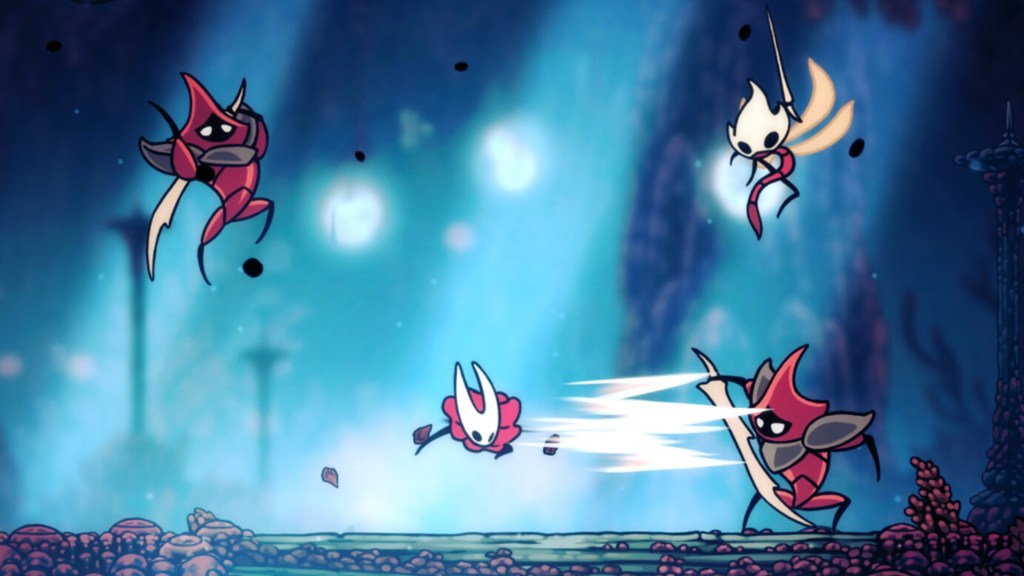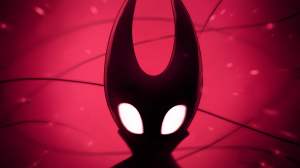As is often the case with games that break established rules and gain massive popularity, a fierce discussion has started around Hollow Knight: Silksong and what it means for indie gaming. Numerous game devs and consumers have weighed in on the impact Silksong might have on the future, with some hopeful and others fearful about how it will change industry expectations.
Videos by ComicBook.com
Gaming consumers and Silksong fans view the title as aspirational in the way it offers a high-quality, immersive experience crafted by a small team. Notably, this experience is available for $20, with no subscription requirements, Battle Pass, or micro-transactions. However, in the current gaming environment, marked by mass layoffs for studios and the looming specter of subscription-based gaming, it feels like the pressure to “be like Silksong” may threaten to change the consumption of indie games in the future in a potentially negative way. To be clear, this isn’t the fault of Silksong, but the game may be the impetus, in combination with other factors at play, that tips the scales against new indie developers in the future.
Indie Developers Will Have to Play By Different Rules
In the wake of Silksong’s sudden release announcement, developers of a few other indie games, particularly those going for a similar vibe, had to scramble and move the release dates for their own projects so they weren’t competing directly against it. Their caution appears to have been warranted, as Silksong managed to sell over 5 million copies in just three days of release, also crashing services like the Nintendo eShop and the Steam store in the process.
With such tangible influence on gaming customers, some game developers have publicly expressed concerns about the impact Hollow Knight: Silksong might have, arguing that the game might set unrealistic expectations for what an indie should achieve for the low price to the consumer.
Some devs worry that the new standard Silksong sets for an indie game in terms of quality and value just cannot be as easily matched as some assert that it can. For these developers, it might be better to view this game as an outlier instead of something to attempt to emulate. While some may mock this worry and suggest these devs should just adopt a “get good” attitude, the developer concern feels legitimate in the current gaming landscape, which is struggling with monetization and its identity going forward.
Services like Xbox Game Pass have transformed gaming in such a short time, making studios unable to rely on just the sale of game copies as a younger generation orients itself toward spending less on video games. In July, Mat Piscatella of Circana documented a worrying trend among the younger generation and future of gamers, who plan to cut spending by significant amounts in the future.
Now more than ever, it feels like indie game developers lack the resources to keep up, as gaming seems to be following the model of Spotify and Netflix, where people sign up for big company services and less frequently buy copies of albums, songs, and movies to fund actual creators directly. Indie games used to dream of competing with big studios because they offered novel experiences at a cheaper price. However, now that gaming subscriptions are taking over and Silksong has set a new benchmark for what an indie game ought to be, many are now losing heavily on that value argument.
So What? Shouldn’t Indie Developers Adapt?

Some may argue that the pressure on indie games to improve, as seen with Silksong, is ultimately a good thing because it raises the bar for the industry and encourages better products to reach consumers. However, looking at how things have turned out for music, movies, and TV shows, it doesn’t seem to work that way in practice.
What might actually happen is that instead of helping indie games flourish, these expectations contribute to a greater stranglehold on the industry and funnel customers toward more corporate solutions. In the current state of the movie industry, independent films are in a worse place than ever, struggling to get on screens as movie theatres close down.
According to Civic Science, 65% of people now prefer to watch movies on streaming services at home, and are even willing to wait for releases over opting to watch them at the theater. One may think this is primarily due to convenience; however, a survey conducted by Civic Science in June showed that the top reasons cited among non-theater goers were a lack of interest in the movies playing in theatres and the price of tickets.
Silksong and what Team Cherry achieved doesn’t feel like something that can be easily emulated in this era of changing customer spending attitudes, for indie developers and big industry players alike. Silksong was first revealed in 2019, with the team working for years on the project in a way that most indie game developers who make games as a job can’t really afford to. Desiring Silksong to be the standard rather than an outlier could ultimately harm indie developers, who are already discouraged by the requirements for competition and must find a way to stand out to an audience that increasingly prefers to spend money on microtransactions and subscription-based gaming.
Silksong Should Still Be Celebrated

Silksong deserves its accolades for being a spectacular game that has pleased so many players and series fans. Hollow Knight: Silksong continues to have a mind-blowing player count, and people should hold it up as an excellent Metroidvania triumph. However, the fixation around value in the indie gaming space, where reviewers weigh hours played versus money spent, threatens to miss the forest for the trees as big corporate bulldozers are rolling in to knock everything down.
Games should not need to offer infinite value and multiple tens of gameplay hours to meet a minimum threshold to be worth something in the eyes of the gaming public. I would rather play a fleeting game that offers a novel and engaging experience than one that throws in extra hours so that I can feel like I got my money’s worth. I fear I may be in the minority on this, which is why I worry that the increased expectations some want to champion to pressure other indie games to emulate Silksong may ultimately result in the opposite of their intended effect.









